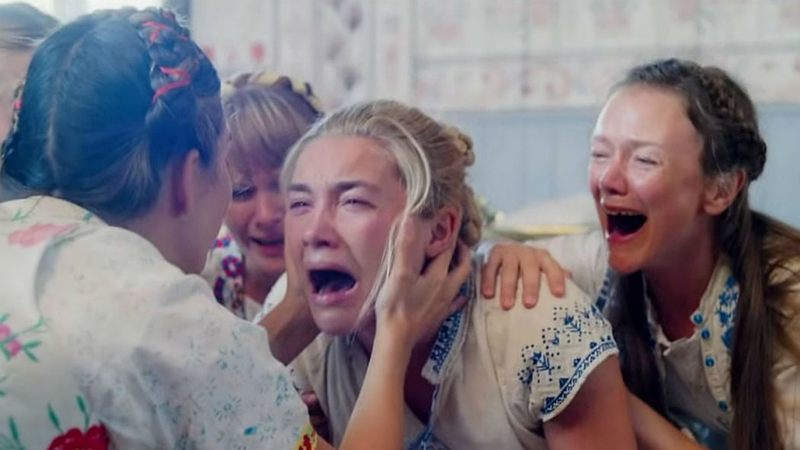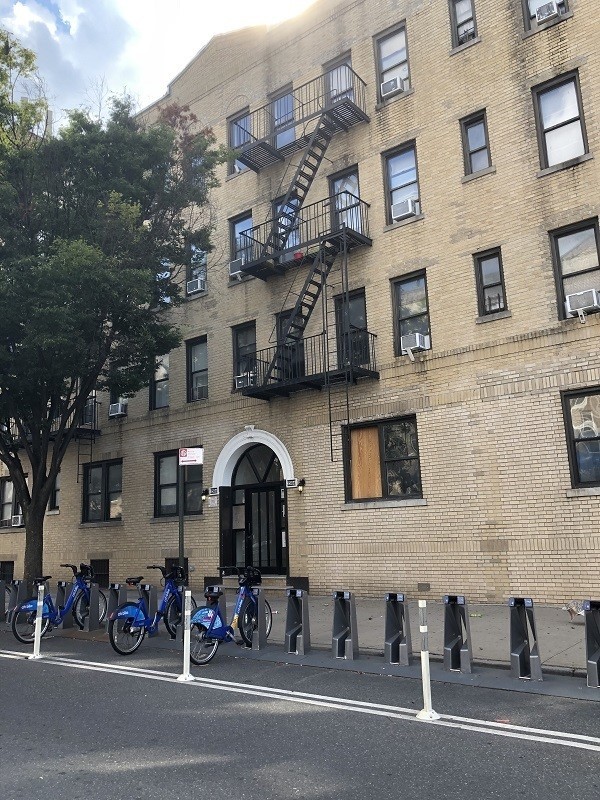
I’m watching the director’s cut of Ari Aster’s “Midsommar” at Lincoln Center and I’m about to lose my mind. Is this a film about a break-up, about grief and loss, about what that does to you? I had plenty of grief with which to meet the film. Before the original cut of “Midsommar” had been released, Rachel Thompson, my close friend of many years, died of an accidental overdose, a term so clinical it makes me sick. It’s such polite language for the worst moment of so many people’s lives. I made a film about her because I wanted not only to pay tribute to her memory but because I wanted to preserve forever what it felt like that week to lose someone who meant the world to me. To cry knowing you could cry forever, and that no one would stop you if you didn’t allow them. I saw the movie, felt nothing, got on with my life. Last week, my friend Brettney Young, who knew and loved Rachel the way I did, died too. This chapter of my past was ripped out. The memories I had of the one of them was wrapped up in the other. When Rachel died, I called Brettney and we commiserated for hours. We saw each other at the funeral and afterwards. Brettney were broken inside, I could see it plain as day on their stern expression and shaking hands. The depression that raged inside of them didn’t get better. Now I have neither Brett nor Rachel, no one to call who will know what I lost. Three days later, the director’s cut of “Midsommar” played at Lincoln Center. So go ahead and move me, I thought. Do something. Anything. I need it.
Horror cinema is one of the things I’ve known as long as any of the people in my life. When I was a child I used to while away the time reading The Encyclopedia of Monsters by Jeff Rovin, renting “Pumpkinhead,” “The Birds,” and “The Evil Dead,” and writing “Return of the Living Dead” fan-fiction when bored in class. Horror was mine, it kept me sane, introduced me to the abject, the unknowable, the grisly and gruesome. Horror is about facing the unspeakable and terrifying. I watch George Romero’s “Dawn of the Dead” whenever I get sad or sick like it’s Benadryl for my eyes. The extended cut has scenes where the marriage between two of the leads, Stephen (David Emge) and Fran (Gaylen Ross) crumbles. They’re miserable together but Romero gifts them one moment that makes you see that they do occasionally make each other happy. Stephen teaches Fran to fly a helicopter and her shriek of joy after he gives her this gift suddenly makes the horror melt for a moment. That’s why they’re together even though they hurt each other. I do not want to imagine someone else’s pain, I want to see it.
That’s what keeps bothering me about “Midsommar,” all three hours of it. Where is the real, minute-by-minute sense of Dani’s agony? When does this movie about grieving actually deal with its subject? That’s why I love Rob Zombie. He doesn’t skimp on the misery caused by his lead characters, nor does he excuse it. This is life. It’s brutal and unrelenting and when the screaming stops you just gotta get up. I could write forever about Laurie Strode and Sheriff Brackett in “Halloween 2,” the way Zombie brings the camera inches from their pained expressions and incoherent ravings. There’s no distance between the image and us, and I know now what they feel like as survivors, and that’s what I need. I know the movie trusts me with Laurie’s pain. That is such a huge gesture from a director who could have just killed a new set of teenagers. Instead he gifted me with a roadmap for screaming through the loss.
I had made plans to see Rachel just before she died. I’d come to see her, and she was asleep and didn’t answer the door to let me in. Moments like that haunt you. If she’d just opened the door, if you’d knocked louder, another few hours with her. Brettney was supposed to come down to the Black Star Film Festival with me but some scheduling thing stopped them. Another few hours I didn’t get. We talked three days before they died. Three days. Their last Facebook post is “I’m leaving Canada, goodbye I guess.” They may or may not have meant the last part to stay with their friends forever, but it will. I go to work the day Brett died because I was not planning on this day going this way. I start talking to someone about … something, I don’t remember what, but halfway through my eyes water and I make a quick mental note to walk away the second I’m done talking. I crouch out of sight behind the bar for a friend to cover the rest of my shift but she can’t come back for a few hours, so I make myself little benchmarks and bargains to get through the next few hours. This customer just needs their order taken and then you can read that Gary, Indiana piece you bookmarked and not think about death and you can just be at rest for the next 15 minutes until the food is ready. The horror of grief? It’s that the world doesn’t care that you’re grieving. How could it, it has no idea. You’re just another living person.

Rachel was a set PA for a number of TV shows. Her funeral is thrown by the cast and crew of “Mrs. Fletcher,” the Kathryn Hahn HBO show. She and Carrie Brownstein both hug me for a small eternity, giving everything in their being to a stranger during the worst week of his life. I will never forget the generosity of that moment, it felt like the most love anyone had ever given to another person. Abbi Jacobson from "Broad City" is there because Rachel was the head PA on the final seasons of the show. I hadn’t seen the last season of the show yet. When I do it breaks my insides apart. Abbi and Ilana Glazer, who’ve spent the last four seasons doing everything in the world to prove their love to one another as best friends navigating New York City, my city, have to learn to say goodbye. When the show ends with a final tearful embrace in Astoria, blocks from my apartment, I vow to go find it one day. Seems fitting somehow. I’ve always known Abbi’s character lived in Astoria and I recognize some of the landmarks but I’ve never been able to find it. I feel Rachel just off camera during every take, as these two soulmates are saying goodbye to each other for several excruciating hours. They get to say goodbye. I didn’t. She just left. This is the closest I’ll come, watching one of her last acts as, by all accounts, the best production team member in the city. Everyone remembers her fondly, everybody comes to the service, everybody’s shaken to their bones that she’s suddenly no longer here. When Brettney follows her, I’m not comforted but I get it. Living without that part of you, the friend that Rachel was to them? Unbearable. Even on good days it’s unthinkable that I have to just keep going and I’ll never get to talk to the two of them ever again. The ending of “Broad City” lets me pretend I got to have that cathartic moment and that Rachel and Brettney did, too. On bad days, that illusion just barely keeps me afloat.
The way “Midsommar” relegates Dani’s supposedly all-encompassing trauma to just one more character beat drives me crazy while watching the director’s cut. I remember Toni Collette cutting her head off fifteen minutes before the end of Hereditary. “What was the point of watching her try and deal with her issues if you were going to kill her?” I all but scream at the screen. I’m old-fashioned in a few ways, I guess, and I want nice people to get something out of suffering the way that I suffer. When my cousin Keith dies just as his second son is born? When I’m 23 years old and Ben Nangeroni, one of my best childhood friends dies of a heart attack in an ambulance because he had been living with undetected diabetes? When Rachel and Brettney die in the same six-month period? Life is not going to give me closure, or even make me feel the slightest bit better about any of this, this is my dumb, unyielding pain now, like a vestigial limb. I’ll always feel it even though no one can see it. So I don’t think it’s unreasonable to want my horror films, my treasured nightmare fuel, to give me what I’ll never feel in life. That’s what I want. I want films to look squarely into the abyss of loss and puke back what it finds all over me.
I go to see “Crawl” by Alexandre Aja and it’s everything I want. A young woman plagued by one new trouble after another, and she and her father simply have to tourniquet their maimed limbs and broken bones and keep going. Each new scar is going to translate to more might thrown at what threatens their survival. I need the pain to mean something now. When Kaya Scodelario’s young heroine holds her breath long enough to defeat one last Alligator in the final moments of “Crawl,” I cheer and laugh and I get all the pent up horrible feelings I’ve got in me out. The film lets me feel it, gives me permission to scream and throw everything I’ve got up onto the screen. I’m more grateful than I ever have been for good horror movies now. They get me, they see me, they let me feel the way I do in the dark where I have to answer to no one’s expectations of my own emotional life. Movies like “Crawl,” “Texas Chain Saw Massacre,” “Halloween 2,” “The Thing,” “Opera,” “House of the Devil,” “Wolf Creek,” “The Crazies,” – movies that look without blinking as we’re hacked apart and in fear for our lives, they’re more important to me now than ever.

When “Crawl” ends I go out the backdoor of the movie theatre on 37th street in Astoria and walk one block and there it is. Abbi’s apartment. I take this picture, to hold onto forever. One small piece of my friend, gone forever but a little closer than she was a minute ago. It was the only perfect moviegoing experience I’ve had this year. Movies don’t know or care that you’re suffering but this one held my hand all the same. Sometimes that’s all you get. I’ll have bad days soon, I’ll have to flee from social engagements and other movies that make me claustrophobic for this reason or that, but I’ll never run away from them. The next movie could be one that makes me feel less sad, less tired, less alone. It could be the one that makes me grateful I get to carry Rachel and Brett with me for the rest of my life.
Scout Tafoya is a critic and filmmaker who writes for and edits the arts blog Apocalypse Now and directs both feature length and short films.





